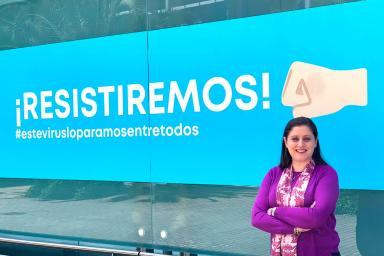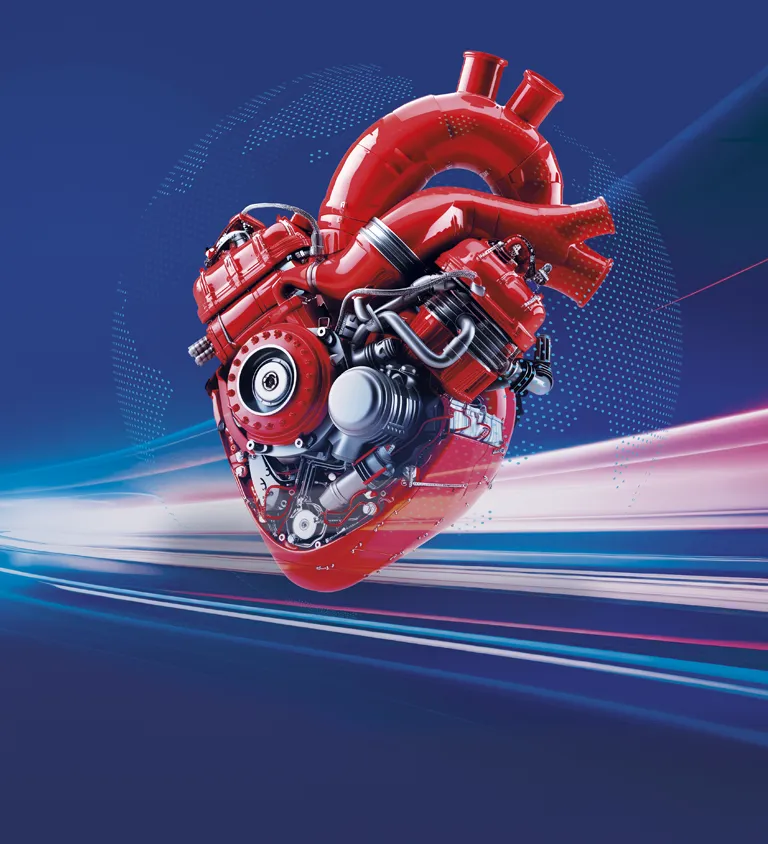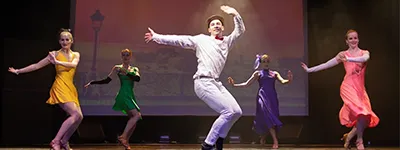

Interview with Ana Carrazón, Project Manager at IFEMA MADRID
The profile of Project Manager is one of the most valued in organizations. This professional, with a solid experience in project management and specialised in implementing new business strategies, combines managerial and administrative skills that make him or her a key figure, as a promoter of new objectives and a team leader.
Identify needs and opportunities
The first task is to analyze the situation in which the client finds himself, identify his needs, and scheduled tasks. The Project Manager's mission is that this entire process be carried out in a constant connection between IFEMA MADRID and the client. Depending on the nature of each client, this relationship is more or less lasting. For example, in the case of an international organization, the connection between client and Project Manager lasts for years, thus generating good synergy and trust.
At IFEMA MADRID we try to keep each Project Manager managing the same client, avoiding any "disconnection", although this can be difficult due to agenda constraints. Nevertheless, and especially in the case of international events, we try to ensure that the person who initiates the relationship with the client is responsible for carrying out the project, in order to extract their detailed needs before proposing, designing and coordinating the event.
Involved in a project, from start to finish...
Someone has to coordinate the needs of the project on-site, that is, what are the exact needs of the client. You don’t just organize the event exclusively with the client, you are doing it with all the suppliers. Furthermore, most organizations have a "false expectation" that their providers coordinate with each other automatically. That's where the Project Manager has to take the initiative.
IFEMA MADRID is a complex structure, and the need for a professional with a global vision of the event and the venue (which in this case is me) is necessary. Knowing what the final customer needs, what all their suppliers need, and matching that with what the various IFEMA MADRID departments involved in each project have to contribute: security, fair services,
Design projects in coordination with the client
The Project Manager creates the concrete plan to achieve the defined objectives, which starts with the explanation of the project and is then detailed in its phases and the deadlines to be met.
We are an adviser-guide that works hand in hand with the client throughout the process of the event (before, during and after). Meetings with clients - in my case mainly international events are generally established weekly. When the organization is located outside of Spain, we maintain constant communication by email, telephone or Skype.
Typically, we talk to different partners to tackle an issue, so we have to analyze what they want to do, what we have to provide or if we can "give the green light" to the client's proposal. We also have an advisory role as experts in the events sector, with technical advice, visibility, assembly...
Do clients keep the same Project Manager from one event to the next?
If the relationship is good, we try to ensure that the client is guided and advised by the same person in each edition. In rotating international congresses, for instance EULAR or ESMO, the Project Managers are maintained. For other events that come back to our venue after longer periods, we cannot guarantee it.
The qualities of a Project Manager at IFEMA MADRID
An IFEMA MADRID Project Manager stands out for their ability to receive, process, and communicate all event information related to the event; know what is important and what is not. You have to be a proactive person who provides solutions at each meeting. It is necessary to take notes, have a clear understanding of the needs and objectives, and synthesize all that information to transfer it to the rest of the teams involved. You have to know very well how your company works, to guide customers and their requests.
Especially at IFEMA MADRID, you have to have an “eagle-eye capacity” to see and oversee it all, both the information that comes from within your organization, as well as that from external parties, without losing overall control of the project.
Knowing every detail of the event, without losing the "everything"...
There are certain details of technical aspects, such as telecommunications, for which it is not necessary to have complete knowledge, but it is to be clear about their importance to the event.
Without a doubt you have to know all the parts that make up an event, such as venue and external safety regulations; basic technical and assembly needs ... particularly with international events, which which are impacted by legislation and regulatory bodies. With the passage of time you are nourished by a lot of information, very useful for that consulting value that you contribute.
IFEMA MADRID is a very large and complex venue
The positive part of this is that we can host the largest and most important events in Spain, thanks to our "XXL spaces"; but yes, it is a complex place to coordinate. However, this is where the figure of the Project Manager has an essential function.
Information, the most precious tool of a Project Manager
The Project Manager examines and evaluates all phases of the event. This control allows improvement decisions to be made as the event preparation develops, in addition to managing contingencies to avoid making serious mistakes.
Of course some unpredictable problems arise, problems unrelated to the organiser. I always believe that everything you can put in place in advance will be useful when you face unforeseen problems, since at that moment you are in chaos and you have to focus on that unknown. It is important to have everything under control and for that it is necessary to know the business, the venue and your client very well.
I have a client who always says, "Murphy comes to all events," and how right he is…










